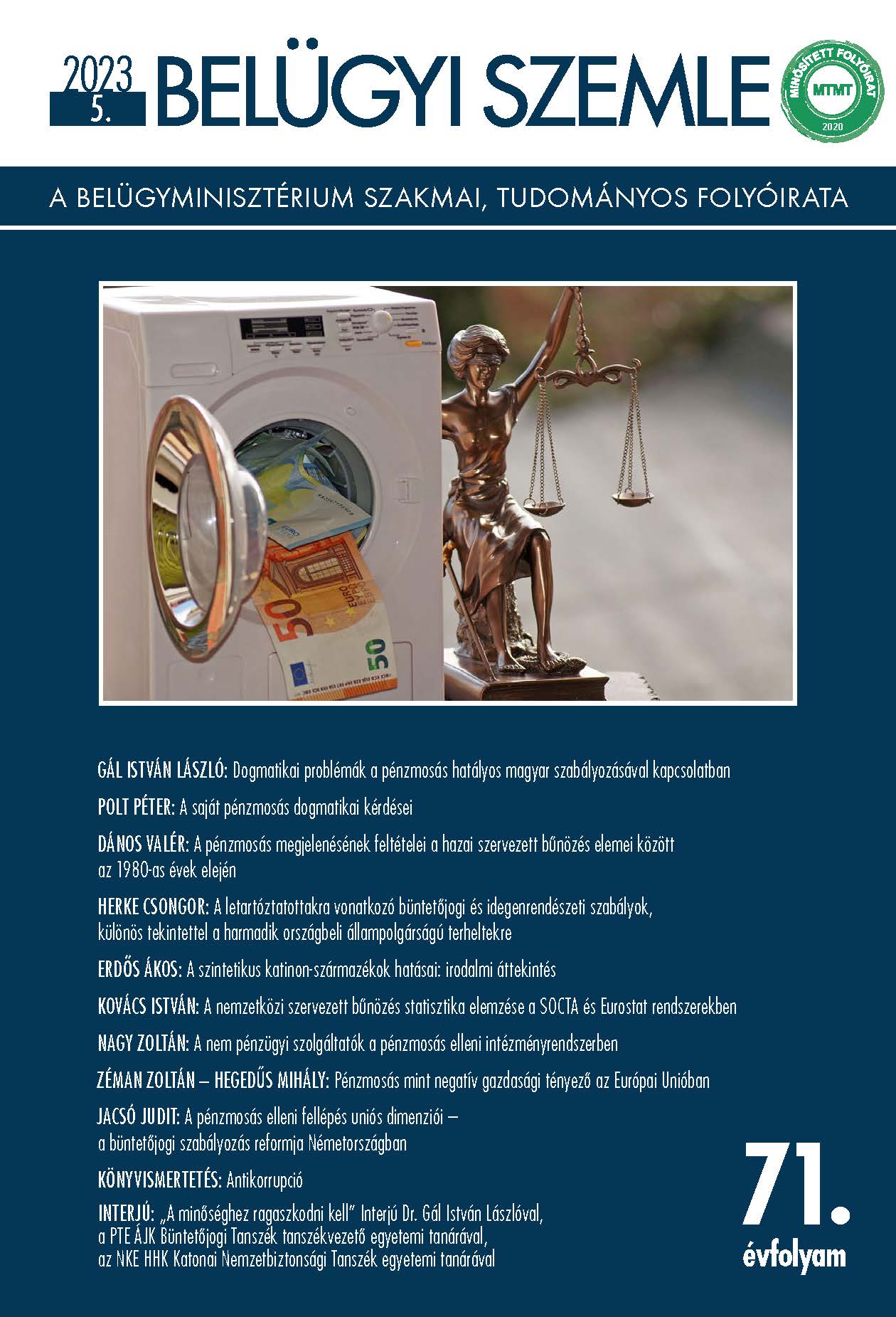Abstract
Aim: The aim of the study is to show how the offences defined as self-laundering can be integrated into the system of Hungarian criminal substantive law doctrine and what theoretical demarcation criteria can be defined in the relationship between self-laundering and the unpunished subsequent offence.
Methodology: The study expounds on the theoretical background of the currently effective Hungarian criminal law regulation of self-laundering, while also analyzing briefly to what extent it fits into the system of domestic criminal law traditions and international standards, and to what extent it can be considered coherent and applicable in terms of principles of criminal dogmatics.
Findings: The current provisions of Hungarian substantive criminal law are fully in line with EU and international standards as regards the acts that can be considered as self-laundering, but the scientific assessment and enforcement practice of these acts is not fully developed yet.
Value: One of the most important prerequisites for effective action against financial (wealth-generating) crimes is that offenders can be deprived of the wealth they have obtained through criminal activity. In order to achieve this objective, it is necessary for law enforcement authorities to take effective action against money laundering, based on internationally uniform rules.

